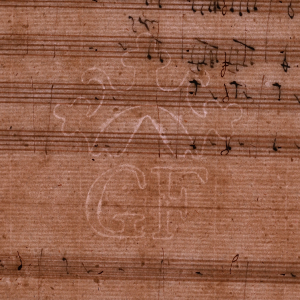- Function
-
- Composer
- Biography
Niccolò Jommelli (1714-1774) was a successful and widely acclaimed Italian composer of the mid-eighteenth century, excelling particularly in opera seria, but also with important contributions as an influential composer of sacred music. Jommelli received his musical training in Naples, which was where his career as an opera composer began in 1737. In 1741, he moved to Bologna where he established a friendship with Padre Martini and became a member of the Accademia Filarmonica. Operas written for various Italian cities shortly followed. Between 1743 or 1745 and 1747 he was musical director at the Ospedale degli Incurabili in Venice, but pressure to fulfil further operatic commissions in other Italian cities caused him to leave. Jommelli’s association with Rome increased in the late 1740s when he produced a number of significant sacred works and where he received patronage from influential cardinals. Jommelli was appointed maestro coadiutore of St. Peter’s in 1750 with an obligation to compose music for liturgical use, though in 1749 he met with an opportunity to compose opera seria for Vienna where his work was praised by Metastasio. He subsequently met with further opportunities to develop the opera seria form in new settings of Metastasian texts, for which he established his international reputation. In 1753, Duke Carl Eugen of Württemberg invited Jommelli to join the Stuttgart court where he would assume duties the following year. It was there that he met with opportunities to experiment with new forms (obbligato recitative) and in the use of the orchestra for dramatic effect. In the 1760s he developed a collaboration with the librettist Gaetano Martinelli (fl. 1764-95), writing several comic operas. He also continued to write sacred music while in Stuttgart.
By 1768, owing in part to ill health, Jommelli had left Stuttgart and had returned to Naples, though he continued to compose into his final years supported in part by a pension from the Portuguese court, negotiations over which began in 1767 (McClymonds 1980; Yordanova 2018). In exchange for the pension he was required to send copies of his operas and compose new ones for performance in Lisbon. Working with Jommelli’s librettist, Gaetano Martinelli (fl. 1764-95), who had temporarily relocated to the Portuguese capital, the operas were adapted to Portuguese performance conditions by the composer João Cordeiro da Silva (c.1735-1808). Jommelli’s pension continued to be issued to his heirs after his death sometime after March 1775. Further scores of Jommelli’s works were consequently to be sent to Lisbon, which probably explains the existence of an autograph polychoral Laudate pueri by Jommelli in the Fundo do Conde de Redondo at P-Ln (Marques 2021).
António Jorge Marques, Niccolò Jommelli’s Laudate pueri Dominum from Biblioteca Nacional de Portugal (Lucca: Libreria Musicale Italiana, 2021).
Marita P. McClymonds, Niccolò Jommelli: the last years, 1769-1774, 2 vols. (Ann Arbor, Michigan: University Microfilms International, 1980).
Marita P. McClymonds, with Paul Cauthen, Wolfgang Hochstein and Mauricio Dottori, ‘Jommelli [Jomelli], Niccolò [Nicolò]’, Oxford Music Online: Grove Music Online (2001), [https://doi.org/10.1093/gmo/9781561592630.article.14437].
Iskrena Dimova Yordanova, ‘“In braccio alla mia amatissima musica”: L’epistolario inedito di Niccolò Jommeli proveniente dagli archivi di stato portoghesi’, in Maria Ida Biggi, Francesco Cotticelli, Paologiovanni Maione and Iskrena Yordanova (eds.), Le Stagioni di Niccolò Jommelli (Naples: Turchini Edizioni, 2018), pp. 911-977.
- Source(s)
- Handwriting identifiers
-
- C-Clef
-
- Type 1
- F-Clef
-
- Type 3
- Paper type ID
- Images
-
-
































